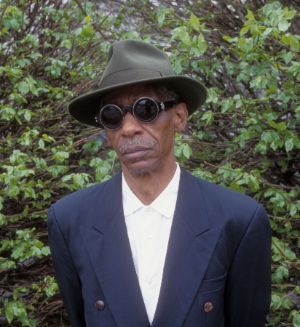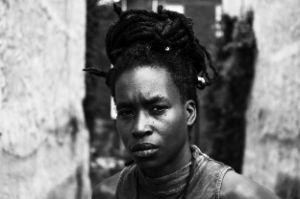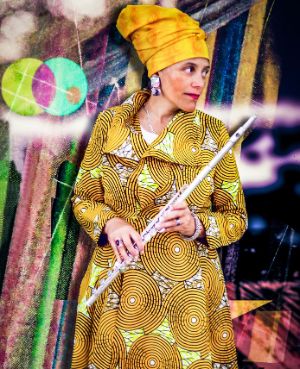Panel | A look back to the future of African-American music
Afrofuturismus & Empowerment
From the cradle of collective movements of African American music in Chicago to current international artistic and academic positions
Visions of the future always also take a stance on the present. Despite all uncertainty about where to draw the stylistic and thematic line in this specific heterogeneous genre-mix of works and artists, which critic Mark Dery retrospectively entitled “Afrofuturism” in 1994, and which can be found drifting somewhere between elements of science fiction, magical realism, extra-terrestrial myths, western cosmologies and wholly post-apocalyptic states, there is, in fact, one connecting factor: Out of protest against the status quo of a social order still shaped by racism, Afrofuturistic art focuses on the future and envisions another world.The artists who will be discussing the subject at the Jazzfest are stylistically heterogeneous in their work, but equally united in their political motivation and explosive dynamic: As a founding member of the Art Ensemble of Chicago, free jazz legend Roscoe Mitchell didn’t only experience the beginning of Afrofuturism first-hand in Chicago in the 1960s, but, as co-founder of the Association for the Advancement of Creative Musicians (AACM), also actively helped shape a future beyond musical and political stereotypes. Exceptional flautist Nicole Mitchell, chairwoman of the AACM from 2009 to 2011, confronts the social racisms of today with musical-spiritual expeditions into a better version of tomorrow. Activist and spoken word artist Camae Ayewa aka Moor Mother is shaping the future by intervening with social engagement in the here and now and by loudly and eloquently speaking out against racial discrimination in its various forms. The US-American cultural scientist and German Studies scholar Priscilla Layne, a Berlin Prize scholarship holder of the American Academy, is currently residing in the capital for research purposes and working on her current book project on Afrofuturism. She will be able to provide interesting insights into the lesser-known German varieties of Afrofuturism. The discussion will be moderated by saxophonist and musicologist Harald Kisiedu, whose research interests include the music of the African diaspora as well as themes located at the interface of politics and music.
Moor Mother on Facebook
RoscoeMitchell @ ECM
Website of Nicole Mitchell
PriscillaLayne @ American Academy in Berlin
HaraldKisiedu @ Columbia University
With Camae Ayewa aka Moor Mother, Roscoe Mitchell, Nicole Mitchell, Priscilla Layne
Moderation: Harald Kisiedu
Funded by


